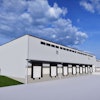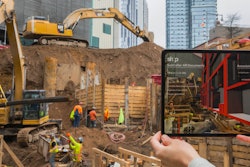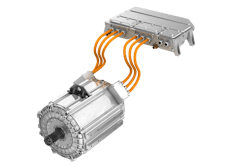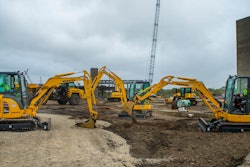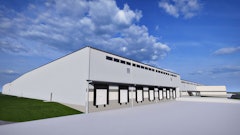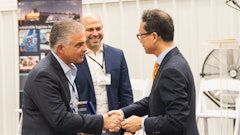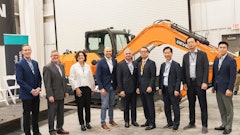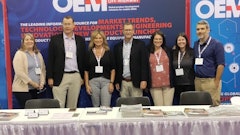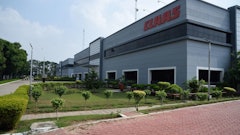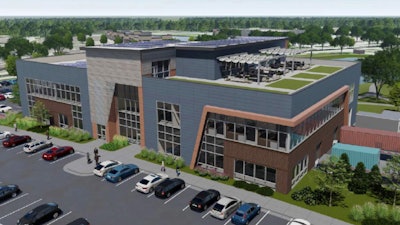
Deloitte and Wichita State University have announced the launch of The Smart Factory @ Wichita, a groundbreaking and immersive experiential learning environment that will accelerate the future of manufacturing as innovation and new technologies continue to reshape operations and the modern enterprise.
Deloitte and Wichita State are constructing the brand-new facility on Wichita State's Innovation Campus, which will include a full-scale production line, dedicated space for select ecosystem sponsors and experiential labs exploring smart factory capabilities. A smart factory is a highly digitized and connected production facility that uses technologies such as artificial intelligence, Internet of Things and robotics to manufacture products. Working alongside humans, smart factories can self-adapt and autonomously optimize manufacturing operations. The Smart Factory @ Wichita will make digital transformations real by demonstrating how to merge existing technologies with new innovations, sparking a dialogue about how companies can accelerate their journey towards scalable and sustainable capabilities.
"Smart factory solutions are becoming even more important as companies re-evaluate the resiliency and agility of their supply chains, which can determine an organization's success in the marketplace and the success of entire ecosystems," says Nishita Henry, Chief Innovation Officer at Deloitte Consulting LLP. "Together with Wichita State, Deloitte will create a unique experience that captures the innovation, value proposition and disruptive technological capabilities of the smart factory."
"Wichita is a cutting-edge hub for precision manufacturing and technology. By collaborating with Deloitte, we will be able to bring together the organization's experience with our educational, research and innovation capabilities," says Jay Golden, president of Wichita State University. "The Smart Factory @ Wichita is the future, offering endless technological capabilities for organizations, as we believe it's critical to provide a hands-on learning experience for our business and academic communities."
The Smart Factory @ Wichita
The Smart Factory @ Wichita will be a net-zero impact smart building on a smart grid featuring 60,000 sq. ft. of sustainable space. The end-to-end smart production line will demonstrate the art of the possible through advanced manufacturing methods and technologies and will also manufacture STEM education interactive kits that will be donated to local organizations in support of Deloitte's advancement of STEM education initiatives.
The facility is expected to open to clients, industry partners and students next year. It is the evolution of Deloitte's existing experience at Wichita State, which features more than 40 robots, robotic programs and cyber applications, 26 AR/VR assets and high-end data visualizations, 10 types of 3D printers, nine reverse engineering machine types, 21 professional engineering software programs and more. It offers a compelling experience in which the digital, physical, and experimental come together — for educators, collaborators, and clients — providing the opportunity to see how Industry 4.0 can make an impact and spur innovation and smart factory capabilities.
The smart factory advantage
Smart factory technologies can dramatically improve business performance. In a recent Deloitte study, 86% of manufacturers surveyed believe that the smart factory will be the main driver of manufacturing competitiveness in five years. The study also showed that early adopters of smart factory initiatives are observing double-digit improvements across labor productivity, factory capacity utilization and total production output.
A smart factory can also address sustainability. Advancing technologies can streamline operations to promote sustainable practices, ultimately reducing environmental impact.

